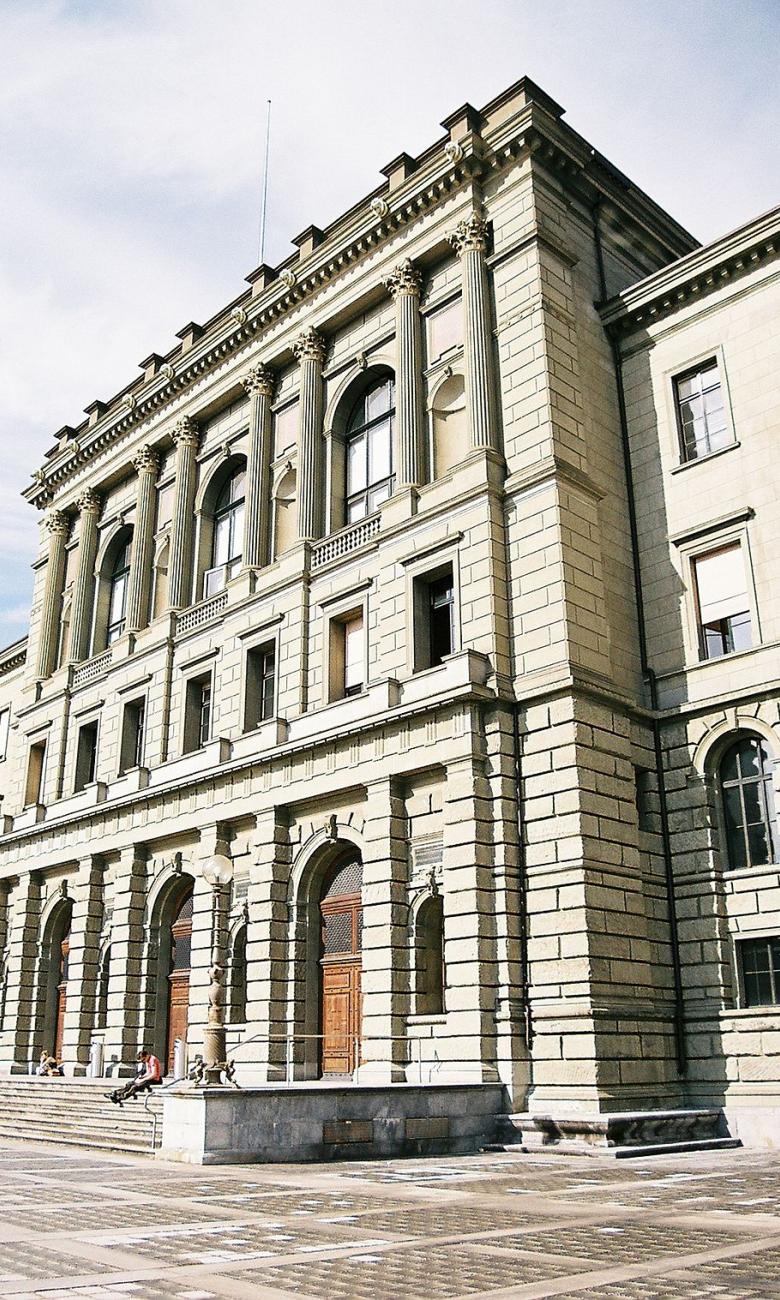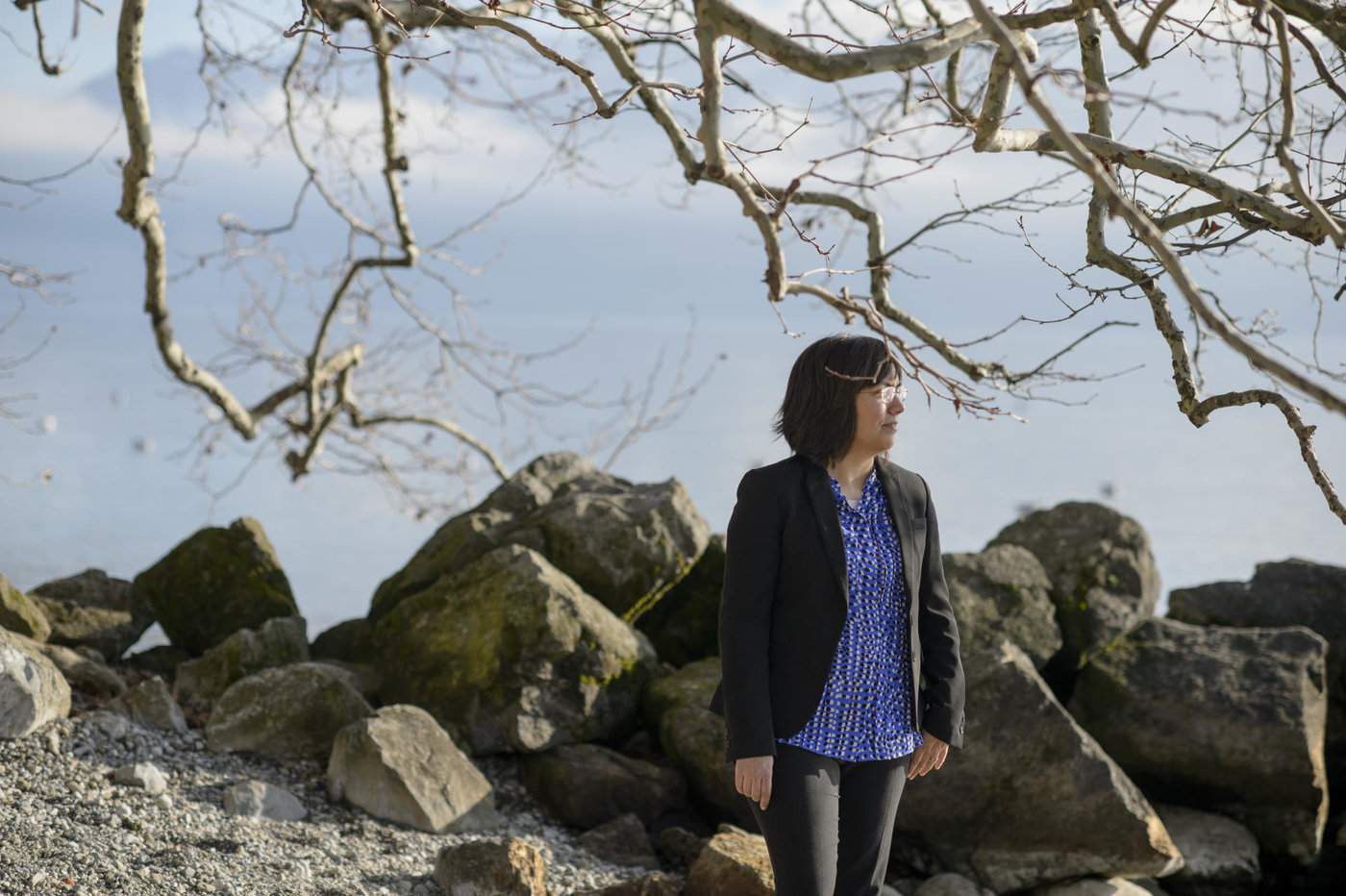Sonia Seneviratne – Swiss expertise furthering the fight against climate change
Swiss researcher Sonia Seneviratne, a specialist in heat waves, droughts and other extreme events, combines scientific rigour with a commitment to fight global warming. Co-author of the latest IPCC report on the physical impacts of climate change, she is considered one of the world's most influential climate scientists.
Professor at the Federal Institute of Technology in Zurich (ETH Zurich), Seneviratne is internationally recognised for her expertise in the processes that generate extreme weather events such as heat waves and droughts. "Her plethora of scientific publications is impressive to say the least. She has consistently succeeded in identifying the daunting challenges in our field, and she helps tackle them head on," says Wim Thiery, a climate scientist at Vrije Universiteit Brussel who did a post-doc in Seneviratne's lab at ETH Zurich.

An epiphany in 1992
The climatologist says she has always been interested in science, especially astronomy. Born in Lausanne, Seneviratne began to become aware of environmental issues at the Rio Earth Summit in 1992, which was the first time that world leaders came together to discuss the environmental future of the planet.
Two years later, she started studying environmental science at ETH Zurich, which was at that time one of the few institutions of higher education to offer a degree in that field. The scientist has not left ETH Zurich since, apart from her masters, which took her to the Amazon rainforest with the Quechua Indians, and a post-doctorate at NASA on IT modelling vegetation's effects on climate.
The role of vegetation in the climate system
As fate should have it, Seneviratne has found herself conducting her research in the eye of one of today's most tempestuous issues: climate change. The year 2019, the second warmest on record, was marked by many extreme events – droughts, heat waves, forest fires... These ever more frequent phenomena are the researcher's focus. "My specialisation is the role of vegetation in the climate system," she says, adding that "two thirds of the precipitation on our planet come about thanks to moisture generated by forests. Although this is a vital process, it has remained poorly understood."

Sounding the alarm
In her Zurich laboratory, Seneviratne heads a team of 15 researchers. "We work a lot with numerical modelling, thanks to very powerful machines that allow us to make calculations at a planetary scale," she explains. "Sonia is always inviting PhD students and professors from all over the world to come and visit her research group, which is an international crossroads of knowledge in our field," says Thiery, adding: "She is also a very supportive adviser: she has helped me tremendously to develop my career."
The scientist is heavily involved in the work of the Intergovernmental Panel on Climate Change, the IPCC, whose reports are authoritative globally. In 2018, she stressed the importance of limiting global warming to 1.5 °C above pre-industrial levels by the end of the century, as set out in the Paris Agreement. "It was a very powerful moment for me," Seneviratne recalls, explaining: "Before this report, I didn't talk much about the policymaking implications of my research. But now I feel compelled to sound the alarm that the measures we are taking are not sufficient to contain global warming."
Climate crisis
A mother of two, the climatologist explains that among other reasons for her activism is her desire to leave "a world with more or less decent living conditions" for her children. For her, "the current crisis caused by COVID-19 shows the fragility of our globalised society when it is affected on a large scale, which is what's happening with climate change". Seneviratne is also optimistic, harbouring the hope that the disastrous COVID-19 crisis will also serve as an opportunity to develop more climate-friendly solutions, such as working from home and making the most of local production.
She managed the work on the section on extreme weather events of the latest IPCC assessment report, published in August 2021. Beyond her interest in the subject, she explains that she did so because "I feel that I'm contributing to something useful in tackling the climate crisis."
Article originally published in Le Temps, Pascaline Minet, 24 March 2020.




